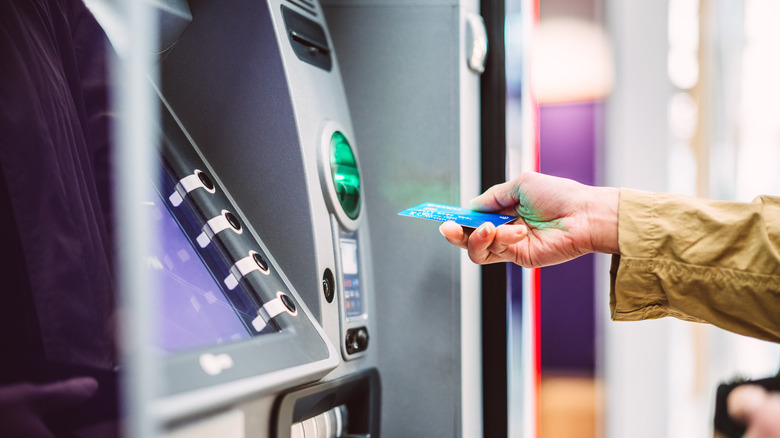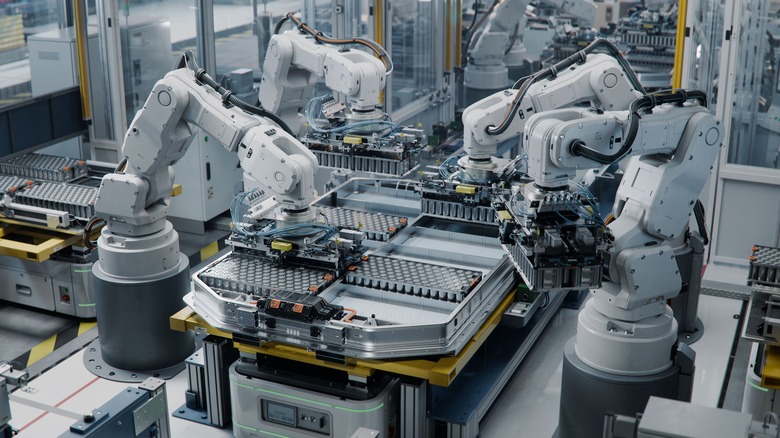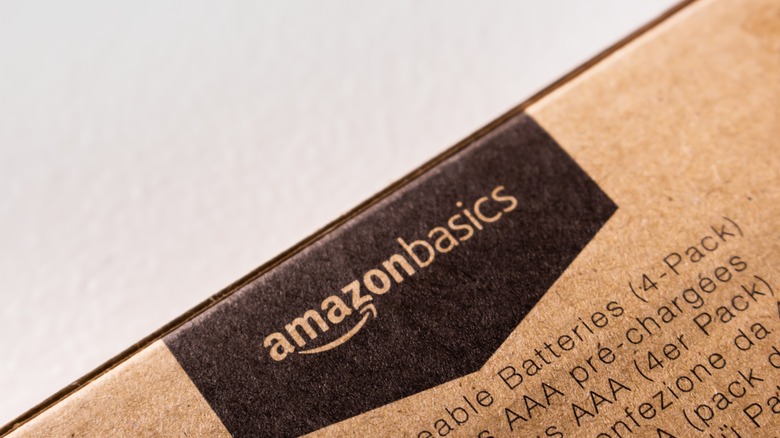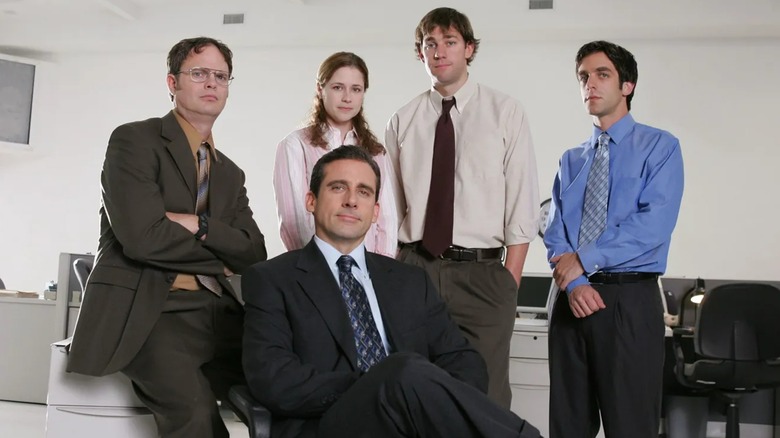11 Of The Absolute Worst Businesses To Start Today
You're an entrepreneur on your way toward amazing business success with a head full of ideas from leaders like Jeff Bezos and a great business plan. You have more than a couple of important key concepts for how to balance your budget, find customers, and build a reservoir of product or service offerings. Small businesses form the backbone of the American economy; this is a common refrain from consumers and politicians alike, and there's a good reason why it's so often repeated. There are over 33 million small businesses across the United States, accounting for 99.9% of all firms in the nation. It's a key feature in any local community, and many provide a personalized service that can't be replicated in the interactions between huge conglomerates and the customer.
Offering a key good or service and doing it at reasonable pricing is a great way to build rapport in your little slice of America. First you'll need to establish yourself and your brand locally (or its equivalent in the digital sphere). However, there are still plenty of pitfalls in any business plan. From paying for inventory to managing marketing and expansion, there's lots to plan for moving forward. Yet, the first hurdle that business owners have to navigate is the business itself. Plenty of businesses have become obsolete in recent years, and there are many ways to set yourself up for catastrophe right out of the gates. If you're considering a new business, steer clear of these kinds of enterprises.
Opening a franchise
Franchise business opportunities offer entrepreneurs a unique avenue into the business world without having to establish their own brand power and user base. Countless businesses in the American corporate ecosystem offer franchise opportunities to interested prospective business owners, including shipping giants like UPS and restaurant titans like McDonald's. Opening a franchise location gives you access to an existing client base that knows and trusts the brand. You'll also gain access to the company's proprietary or signature recipes, product offerings, and workplace processes. It's easy, therefore, to think that franchise opportunities make for a great start when considering the launch of a new business.
But franchises come with plenty of strings attached that can stifle growth or even doom your business venture from the start. To launch a McDonald's franchise, for example, you'll need at least half a million in liquid capital, and should expect to spend over $1 million to launch (perhaps even over $2 million). Operating costs on existing franchises routinely reach over the $1 million threshold once established, so the going doesn't get easier as you find your footing. Franchises can take in over $2 million in sales annually without batting an eyelash, but the expenses required to run a McDonald location severely eat into the profits you stand to earn. Launching a franchise means starting with some helpful resources but trading a large hunk of your profits for the pleasure. As a result you'll be operating on the back foot from the beginning.
ATM networks
Setting up an ATM service network can seem like a uniquely profitable opportunity. ATM operators don't need to physically trade in any specific business space, and these machines don't function in the same sense that a brick and mortar store does. You won't have to pay potentially astronomical rent prices to set down an ATM in a new location, and staffing the facilities isn't an issue either. However, ATM's offer razor thin profit margins and earning your money back (before turning a profit, that is) appears to require a time scale ranging between four and seven years.
In addition to the lackluster financial performance that managing an ATM network provides, the actual business of managing these machines isn't nearly as easy as you might think. ATM machines need to be refilled constantly, especially if they're located in areas that see high traffic and plenty of cash usage like in a neighborhood housing a sports arena. If your ATM is out of cash you aren't making any money so refilling the machines is your main priority. Another potential sticking point comes into play here in the reality that you'll need to cart around a lot of cash to do your job. This could possibly make you a prime target for criminal activity, putting you in jeopardy and placing your business in financial jeapordy at all times.
Print media companies
Digital is where it's at these days. Print media companies large and small are experiencing significant downturns in physical readership, with a concerted shift to the digital media landscape taking priority across the marketplace. Print media is by no means dead, but its role in the marketplace of ideas, the news cycle, and in entertainment spaces alike has shifted dramatically over the last few decades. With the rise of the internet and the truly amazing kaleidoscope of roles that social media and search engines can play in the modern information age, print media is simply too slow to keep up. This isn't to say that physical production in the contemporary world of information sharing doesn't have a place. There's something uniquely special about holding a book or picking up a newspaper, but getting into this business is ill-advised.
Print journalism is a tough industry to break into under even the most hospitable circumstances. News networks are condensing under fewer and fewer corporate ownership structures, and as mentioned, print readership has been in decline for years. If you are considering a business venture that focuses on entertainment, news, or even opinion media in any variety you'll be looking at an uphill battle financially if you choose to focus on physical printing over digital distribution.
Travel agencies
Similar to the way that print media is seeing its status take on a somewhat subjugated new role, travel agencies are a thing nearly of the past. Today, travel agents really only feature in large-scale corporate reservation conversations. Consumers these days have more than enough choices in front of them to instantly compare options for virtually any kind of travel booking they might need. From airline comparison sites to hotel reservation aggregators, there's simply no space left in the digital world for a hometown travel agent looking to help people put together an itinerary for their next vacation.
There is one caveat that should be mentioned here, however. While the travel agent is certainly an endangered species, experts who curate customized packages with specialized knowledge of things to do in a destination can provide a valuable service that consumers are willing to pay for. These kinds of travel professionals aren't exactly travel agents. Instead, they function more as package tour operators. But, to provide a service that enough customers want to pay for you'll likely need to bring together a network of third-party operators in a variety of destinations. Someone looking to get into this space might consider starting small — focusing on tour and travel package options in just one city, or a single foreign destination. Building a network of trusted third party service providers and then expanding will ensure a better service for your customers, but it might be a little too slow in creating profit.
Product brands that are too specialized
Specialization sets a business apart. Anyone can buy just about anything on Amazon or at Walmart. These giant sellers offer such a wide range of items that selling a basic good simply isn't going to get the job done when competing with the economies of scale that the hulking monoliths have at their disposal. Instead, your product will need to feature some kind of unique element or offer a compelling back story that sets it apart. You don't sell stainless steel knives or stylish cutting boards, your product is a hand-forged chef's knife or a luxury hardwood cutting board with beautiful wavy grain running along the surface.
Specialization is the lifeblood of small businesses, but it's possible to create a product that is too niche for the marketplace. African blackwood comes from a threatened species of incredibly slow growing tree, and must naturally be imported to be used in American applications. It, alongside other luxury wood species like bubinga or rosewood, produce beautiful, shimmering grain patterns that truly pop in color, but there are very few buyers interested in the incredibly specific and expensive product you'd be making. Opting for an expensive material can help you create a luxurious product, but the more you make choices that segregate you from the mainstream marketplace the fewer products you'll ultimately be able to sell.
Steer clear of manufacturing unless you're already well versed in the space
A vastly important segment of the overall business landscape, manufacturing is an arena that most people will want to stay away from. Unless you are someone with intimate experience in the manufacturing sector, the learning curve is simply too steep for most people. Generally speaking, product-driven businesses want to work with a manufacturing partner to produce the goods that they sell. This is simple economics, with the economies of scale dictating a reduction in the price to manufacture goods as the volume increases. You might be able to create 10 units per day in your garage, but pay a manufacturing company to produce a 100 of them for the same price and time requirement.
The importance of this partnership between sellers and the manufacturing cycle that helps them deliver products to consumers might get you excited about the opportunity to cash in on the relationship. But companies that specialize in manufacturing have often been doing it for decades if not generations. Similarly, many of the tools used in rapid manufacturing processes cost thousands or even hundreds of thousands of dollars. The startup costs alone can be prohibitive, and that's before even considering the expertise required to operate even the simplest machinery involved in this sector.
High fashion brands
The fashion industry is a space that's constantly evolving and as tastes change. As such, breaking into this space is immensely difficult, and with expensive pieces underpinning any lineup you might develop, getting it wrong over a season or release can mean finding yourself abandoned by the consumer base. Brands competing in the world of high fashion are staffed with lots of designers and they often partner with manufacturers who are committed to improved working conditions to buoy their high-profile status. As a result, the modern fashion space has less tolerance for sweatshops and other workplace cruelty, ultimately increasing a business' operating costs when designing new clothing lines. As a potential new entrant into this world, you'll either have to sell your soul and work with morally bankrupt manufacturers or pay the piper and spend extra to have your items made more ethically.
This isn't the primary issue when it comes to launching a fashion business, though. Gaining traction in the marketplace is all about exposure and interest. If people aren't talking about your brand, it's likely that it isn't selling as well as it could. This means that anyone entering into the high fashion marketplace will need to focus substantially on their social media presence and similar exposure avenues. This can be expensive, and may sit well outside your wheelhouse, leaving you to either try to figure it out on your own or pay someone else to do it for you with varying degrees of success.
eCommerce brands that sell digital products
Brands that focus on the digital sphere can also be placed at a disadvantage if the business isn't prepared for all the additional work involved in launching a digital product. eCommerce businesses that work on creating digital media, offer online coaching or training, or provide another sort of digital product or service have to contend with a crowded, competitive landscape. This translates into it consistent and extensive need to maintain digital marketing campaigns and SEO practices aimed at creating and maintaining a healthy volume of online traffic. It's not enough to create digital products and then just wait for orders to come trickling in. Case in point, the average book on amazon sells around 1,000 copies over its entire lifetime, and just 200 in its first year. Building exposure helps significantly drive sales here and in other arenas, but plenty of eBook self-publishers simply won't enjoy the resounding success that visions of authorship bring forward. The same can be said for nearly all other eCommerce enterprises.
If you're planning on selling something online, it's crucial to enter the marketplace with a good idea of how you'll drive interest in the product. For those who aren't well versed in marketing practices, this can be an extremely costly addition to your operating budget. Moreover, there's never any guarantees that your digital marketing campaign will catch fire. You may have an amazing product to sell yet fizzle out because you can't get anyone to notice it.
Restaurants, if you don't have industry experience
Restaurants can be among the worst business opportunities around. Profit margins can be incredibly tight, and startup costs alone are often enough to turn even the most confident owner's hair gray with stress. For an entrepreneur simply looking to get a new business off the ground and start earning a profit, opening a restaurant is a terrible idea. Restaurateurs are people who know their lane and are able to capitalize on a coherent menu and theme tastefully designed to pique the interest of their target clientele. This is yet another space in which it's incredibly easy to become too basic on one end of the spectrum and far too niche on the other. More importantly, those who don't know the restaurant industry place themselves at a severe disadvantage. The restaurant game is cutthroat and difficult, and anyone who isn't ready for the challenge is likely to find themselves swimming in over their heads right from the start with little breathing room to create positive momentum.
It's worth noting that restaurants aren't always terrible business ideas. Those already working in the food service industry with plenty of experience dealing with suppliers, building menus, and running a kitchen might seriously consider transitioning from clocking in as someone else's chef to owning their own establishment. If you're passionate about food and have the experience to back up your endeavor, then launching a restaurant may be an excellent decision.
Amazon private labeling
The world of Amazon private labeling, often called FBA (fulfilled by Amazon) is a quirky one. Businesses operating in this space work directly with manufacturers to stamp their label on an existing product. Rather than crafting a new type of good or creating a niche model of something that already exists in the marketplace, you'll be looking for a blank canvas to simply slap your name on and begin selling. In a way, this is somewhat similar to the world of franchising in that an entrepreneur is taking on the form of an existing enterprise. But working in the world of Amazon private labeling is a totally different animal, and one that's far less appealing once you pull back the curtain and look at what lies at the heart of this practice.
Simply put, there are far too many people doing it. Competition is wildly fierce in this space and sales can be massively unpredictable at the best of times. Finding a product to put your branding on isn't typically about looking for great value to the consumer either. Instead, you'll be searching for something that people want to buy while also trying to find a product that won't cost much per unit up front. The result is an awkward dance between cost and value. Not only that, but Amazon can change its policies or algorithm at any time, crashing your traffic.
An office supply retailer—like Dunder Mifflin!
The "people, persons, paper, people" brought immense joy to the screens of millions of viewers throughout its run on television, and it continues to bring entertainment bliss to streamed viewing today. "The Office" is consistently referred to as one of the best shows ever made (sometimes even taking the title as the single greatest series in television history). The "employees of Dunder Mifflin" (cue your best Dwight voice) worked (not so) hard to sell paper in an increasingly digital world, and while the economy appeared to be tumbling around them — the American iteration ran through the housing market meltdown, and episodic drama certainly took this reality into consideration — the Scranton branch routinely flourished in its efforts to sell paper, and later printers.
In the contemporary world, this kind of business simply wouldn't survive. The show routinely toyed with the idea that Dunder Mifflin was a dying breed, from Ryan Howard's "take your boss to class" episode to the Michael Scott Paper Company's negative margins and Prince Paper's evisceration at the hands of Dunder Mifflin's aspirations of corporate growth. The convenience of large scale suppliers and digital sales channels make Dwight's refrain totally out of touch with reality (although that's partially the point of his line): "Why would you reorder from a computer when you can have the personal touch of a salesman?"











